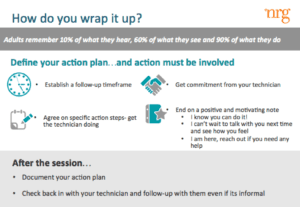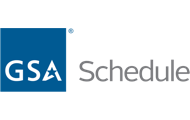Companies spend a lot of money, resources and time creating quality monitoring programs that enhance their customer experience, however much of their effort is wasted when guidelines are not reinforced properly and improving call center agent behaviors is not the focus. To keep employees performing at their best, it is essential to maintain a proactive coaching program that focuses on using the actionable insights from the QM program and coaching to the teachable skills.
Behavior vs. Metrics
Like managing a sports team, coaching call center agents effectively begins with a discussion, rather than an expectation. A basketball coach would never tell a player “I need five 3-pointers this game,” without discussing the behaviors and movements needed to make those shots. Similarly, a call center coach should never say “My agent is at 80% on Active Listening and I need them to be at 85% by the end of this month,” without explaining to the call center agent how to attain this goal. The greatest coaches, whether it be in sports or customer service, focus on one thing: actionable insights driven by direct, behavior focused instruction.
Teachable Skills
The good news is that the majority of call center skills are coachable and that most agents who make it through the hiring and onboarding process can improve their skills.
Providing timely and specific feedback is crucial to your agent’s success, especially regarding behavioral opportunities that can impact the customer experience (i.e., active listening, empathy, tone). If supervisors use specific examples of the opportunity, how the agent can handle the situation differently, and break it down to the behavioral level rather than talking about the high level guideline category, agents will be more receptive to feedback and ultimately provide the desired results.
Creating an Action Plan
When coaching to behaviors becomes a priority over numbers and metrics, supervisors must focus on communicating their objectives clearly to agents and measuring success based on the improvement of call center behaviors. Because measuring behavior isn’t always as concrete as measuring numbers, discussing desired outcomes and setting up a time to make sure they are achieved is crucial to growth. Utilizing empathy, motivating agents with positivity, and meeting regularly about desired behavioral outcomes keeps agents on track and inspired to grow.
Northridge provides feedback directly to supervisors and training staff on how coaching sessions are best conducted. To determine whether or not your coaching program is effective, ask yourself these questions:
- Consistent Feedback Mechanism: Are supervisors using the same standards for reporting and feedback to agents?
- Document Improvements: Are supervisors measuring the integral improvement of agents’ performance, as well as the overall improvement of the team?
- Evaluate Performance Criteria: Are the agents’ goals fair? If the scores are not attainable, it has an impact on morale.
- Encourage the team: Are the supervisors taking a positive and supportive tone?
- “Coach the Coaches”: Are the supervisors trained properly on how to be coaches and deliver critical feedback?
In general, clients rely on Northridge to help get their agents and their entire customer service process from good to great. Call center improvements have a cascading effect across the organization since the contact center is the first and possibly the only point of contact for a given customer. Emphasizing behavioral improvements rather than coaching to the metrics builds not only a happier customer base, but also a customer service team that is dedicated to growth.





